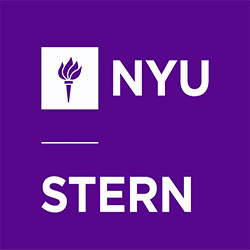I get a lot of questions from prospective students around clubs, and rightly so, you are not only coming for Stern for your studies, the clubs are just as important for your experience! The clubs are also a great way to meet the other MBA students, help you networking with potential employers, learn something new, and of course have a lot of fun. There are three types of clubs: professional clubs, affinity clubs and what I would call “other” clubs.
Professional Clubs
These are clubs that focus on career related events. There are many professional clubs at Stern, below the ones most relevant for Tech MBA students.
For Tech-MBA students the Stern Technology Association (STA) is invaluable. For example, they organized a lunch where the MBA 2ndyears who had just done an internship at a tech firm told us about their experiences. This was very valuable for us to get an insider perspective on what each company was like and we got a lot of job hunt advice. Another workshop I really liked was on Product Management and given by Lewis Lin, a PM “guru” and author of several books on the topic.
Entrepreneurship & Start-up Association (ESA) is another interesting club. The club focuses both on students interested in starting their own start-up, students looking to join a start-up after graduation and on students interested in venture capital. I find the club valuable for pointing out start-up competitions in the city as well as all events related to entrepreneurship that are organized by the university, not just Stern.
The final club I want to mention is the Management Consulting Organization – a great resource for practicing case interviews and networking with consulting firms.
Other professional clubs are in areas including emerging markets, entertainment media and sports, FinTech, government and business, marketing, luxury & retail, social impact and sustainability, energy & infrastructure, healthcare, private equity and real estate.
Affinity Clubs
The affinity clubs are either based by region, such as the Asian Business Society, these clubs are for students from that region and students interested in the region. The Latin American Business Association is known for the best parties, whereas the Stern in Africa club organized the most popular spring break trek this year. Then there are also non-region-based affinity clubs such as the Military Veterans Club and OutClass, Stern’s LGTBQ community. I am a member of the European Business Society, which always serves the best food and Stern Women in Business, one of the largest clubs at Stern.
“Other” Clubs
Then there are clubs for almost everything else: any type of sports, theatre, eating, drinking, public speaking etc. In total there are more than 40 Stern clubs, so something for everyone. And if there is a club that you are missing, start one!
For me personally the clubs are my greatest source of FOMO, as I am a member of too many of them that almost every evening I have choice of several events to join. I guess it is a nice problem to have 🙂 . If you would like to know more about any of these clubs, send me an email at mbaga@stern.nyu.edu and I would be happy to answer your question or bring you in touch with the clubs.
